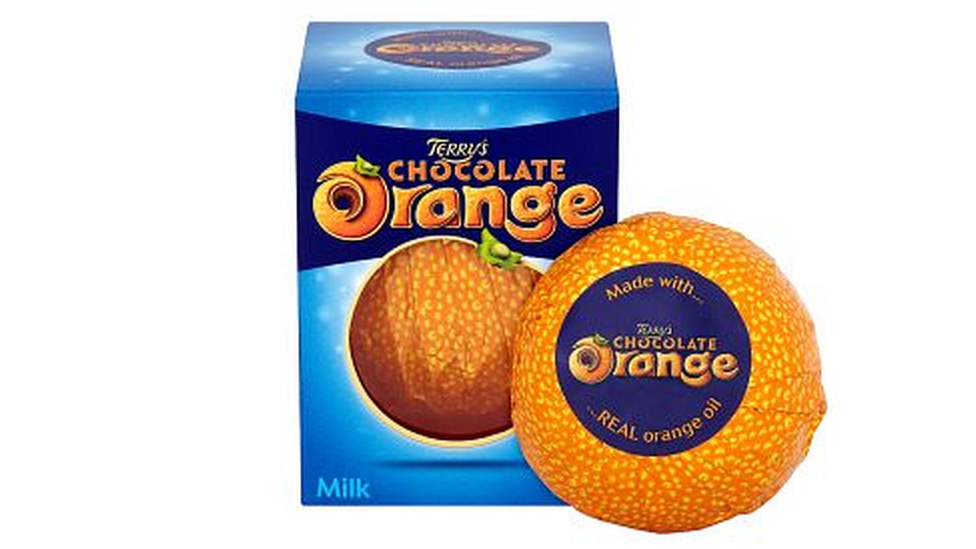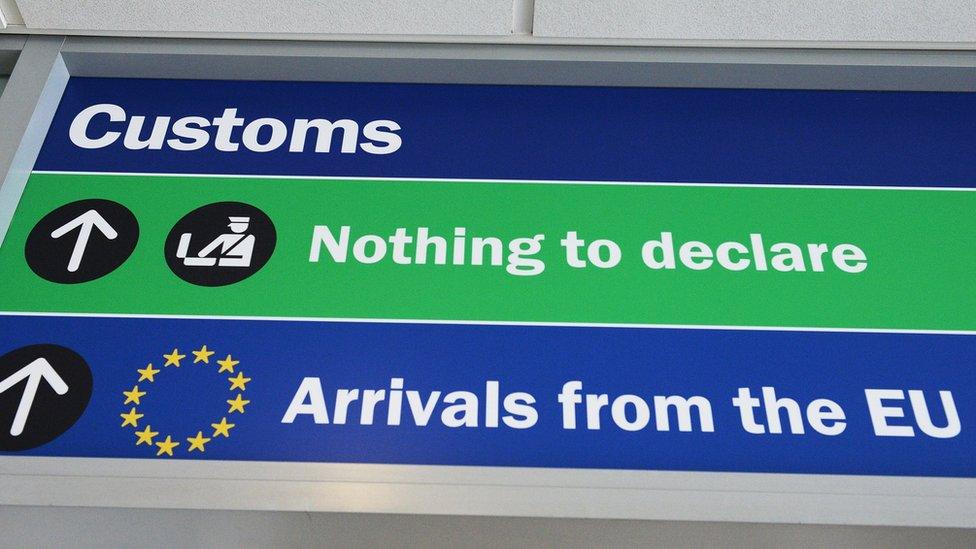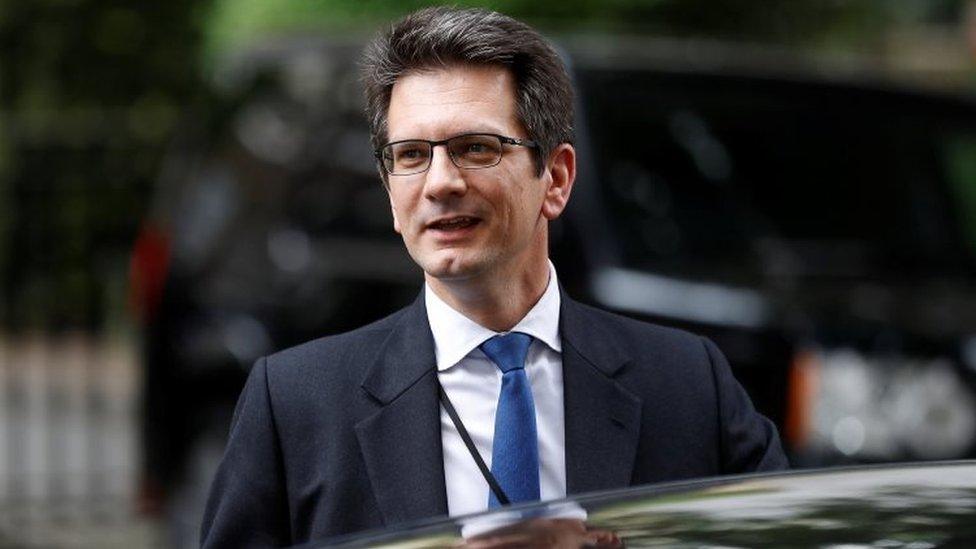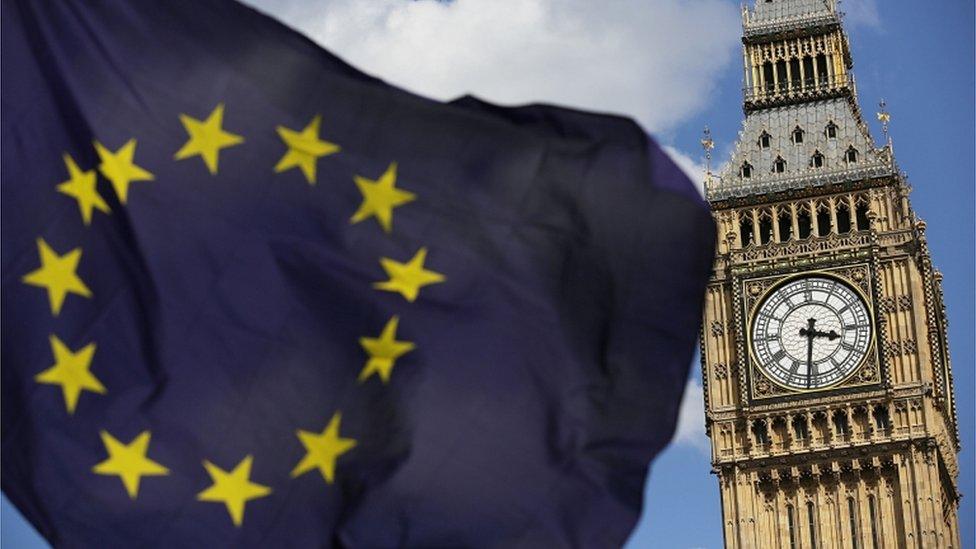UK Brexit plan 'could fall apart at first tap like chocolate orange'
- Published
- comments

The government's "vague" Brexit plan has been compared to a "chocolate orange" by the boss of the UK's public spending watchdog.
Sir Amyas Morse said ministers had to be more "united" or the project would fall apart "at the first tap" like the segments of the chocolate treat.
"It needs to be coming through as uniform, a little bit more like a cricket ball," he added.
Brexit Minister Steve Baker rejected his "vivid" analogy.
Sir Amyas waded into the Brexit debate over concerns the UK would not have a new customs system in place by the time it left the EU.
The National Audit Office head said it would be a "horror show" if officials were forced to manually process imports and exports,
He told reporters at a briefing in London there was "very little flexibility" in current plans and not enough support for officials trying to put a back-up plan in place.
He said "active energetic" support for government departments dealing with the consequences of Brexit was needed.
But he suggested they were being left to their own devices to see how they got on.

Brexit was the biggest peacetime challenge to government but that was "only just beginning to click into people's awareness in government", he added.
"It needs to act as far as possible in a unified way and we have an issue there because of departmental government.
"What we don't want to find is that at the first tap, this falls apart like a chocolate orange. It needs to be coming through as uniform, a little bit more like a cricket ball."
Sir Amyas said he had "expressed interest" to Brexit Secretary David Davis and officials at the Department for Exiting the European Union (Dexeu) in seeing a report on the overall preparedness across government but the response had been "vague".

Steve Baker says there will be a 'smooth and orderly' exit
Brexit minister Steve Baker said of Sir Amyas's comments: "It's a very vivid choice of language, but I don't accept that is the case.
"What I'm seeing from the inside of government is a very active and energetic process in place.
"I'm seeing very clear political direction and I believe that we will be able to deliver all that is necessary across government to ensure a smooth and orderly exit from the EU."
A significant increase will be needed in border staff to cope with a massive increase on the service once Britain leaves the customs union, said the chief auditor.
The move to the updated Customs Declaration Service (CDC) was planned before the UK voted to leave the EU.
Following the referendum result, its completion date was brought forward to January 2019 - just two months before Brexit is due to happen.
"This provides little contingency time should the programme overrun or unexpected problems occur," the National Audit Office said in a report.
New system
Goods pass through UK customs whenever businesses import them into, or export them out of, the UK.
At this point, depending on the nature of the goods, taxes and duties may be payable.
As a member of the EU's customs union, the UK does not impose taxes or require customs declarations on goods from other member states - but as part of Brexit ministers plan to leave the customs union and negotiate a new arrangement in its place.
Revenue & Customs (HMRC) estimates this will mean the number of annual customs declarations will rise from 55 million to 255 million after March 2019, with an estimated 180,000 traders making customs declarations for the first time.
The ageing system being replaced could cope with only 100 million declarations, the NAO said.
Its report said progress had been made in moving to the new system, but that there was still a "significant amount of work to complete".
Without proper contingencies, it warned:
Border taxes currently worth £34bn might not be collected properly
Business confidence could suffer if traders struggled with the new system
The £700bn flow of goods between the UK and the EU could be disrupted, and the government's plans to increase international trade after Brexit could be affected
The UK's international reputation could suffer
Responding to the report, HMRC said: "The Customs Declaration Service is on track for delivery by January 2019 and will support international trade once the UK leaves the European Union.
"We took the decision to bring in a new declaration system before the EU referendum, but the service remains fully capable of dealing with how the UK's exit from the EU will impact on customs declarations at the border."
- Published14 August 2017

- Published30 December 2020
